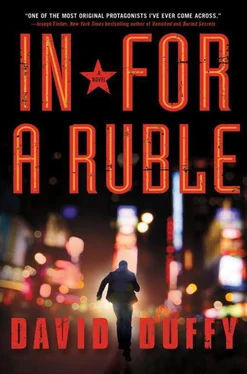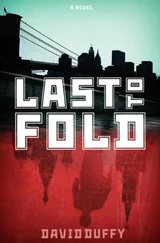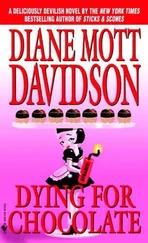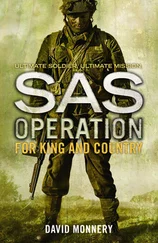Something had been tugging at me in the empty restaurant, something I was overlooking, but I couldn’t grab hold of it. Perhaps only that a day spent with a crushed Marianna Leitz, a terminally ill Jenny, and a hamstrung Stern left me unsettled. Never mind Andras’s and Irina’s bank accounts. I was delving into all kinds of problems that weren’t mine and couldn’t do a damned thing about. Except make them worse if I discovered one of the Leitzes had conspired to undercut their brother. Julia Leitz didn’t promise to break the mold.
It had taken a minute to peg the guy following me when I came out of Ballato’s. I’d all but forgotten about the gray Camry until I crossed Houston and saw a balding man sitting in the big window of a pool hall on the far side, looking out. He held a folded tan overcoat in his lap. He probably thought the dim light of the billiard parlor provided the perfect cover. He hadn’t counted on the streetlight directly above his head. I couldn’t be sure he was the same guy who’d been in Bedford, but I wasn’t about to bet against it. His face and clothes said he was American. Nothing about him, starting with competence, said he was working for Nosferatu. Still, he had to be working for someone.
I kept walking, down the stairs of the Bleecker Street station. He followed a minute later. When the train came, I got on, and he did as well, the car behind mine. At Fourteenth Street, I waited until the doors started to close and hopped off. He wasn’t fast enough. I was tempted to wave as he passed. I climbed back to the street and caught a cab uptown. I’m not sure why I bothered—except old habits die hard.
Julia Leitz’s building was one of dozens of similar Third Avenue structures, mediocre, knockoff international-style skyscrapers, all equally forgettable. I didn’t bother to look for Tan Coat. He would know my destination or not. I showed my driver’s license to the lobby guard and took the elevator to the sixteenth floor. Maroon letters announced THE LEITZ GROUP in flowing script. The receptionist had gone home, but a harried-looking young man answered when I buzzed and led me through the halls and cubicle clusters to a corner office with two secretaries’ desks outside. The place was still busy with the sounds of keyboards, phones, TVs, printers, and voices. The staff was young—twenties and thirties. Unlike her brother’s shop, these kids were fully dressed, some even wore skirts and ties. Most had the same harassed look as the man who’d let me in.
I waited at a respectful distance while the kid stuck his head in his boss’s door. He recoiled as Julia Leitz’s twang blew out. They could have heard her back in Queens.
“SHIT! I DON’T HAVE FUCKING TIME FOR THIS. WE’RE ALREADY GOING ALL FUCKING NIGHT. I TOLD HIM TO CALL. WHY DIDN’T HE FUCKING CALL, GODDAMMIT? WHY DIDN’T HE CALL?”
I stepped around the young man into the office. He shouldn’t have to answer for my sins.
“He didn’t call because he forgot,” I said quietly. “He apologizes. No harm done, at least not to him. If this is not a good time, he can come back later—or perhaps tomorrow. I’ll tell your brother you were busy.”
Julia Leitz sat behind a table-desk strewn with papers. A flat screen held down one corner, three more behind her head. The furniture, prints, carpeting, and curtains were all decorator neutral, without personality, conveying nothing. The woman behind the desk was plump, but not overly so, and dressed in a white blouse open at the neck. She was neither attractive nor not. Bags under her eyes indicated she lived the lifestyle she espoused. She took a big swallow from a glass next to a Diet Pepsi can. I don’t know whether the mention of her brother changed her mood or temperamental outbursts ran in the family, but she seemed to cool as I stood there.
“That’s okay,” she said, standing. “It’s been a long day. Going to be a long night. Sit down. Later won’t be any better.”
She came around her desk and took an upholstered chair. She wore a black skirt beneath the white blouse and black shoes without heels. I sat in a matching chair across a glass coffee table.
“I won’t waste your time,” I said. “I’m here on your brother’s behalf. I want to know about some people—perhaps a man and woman, stating they were lawyers—who might have come to see you a few weeks ago.”
“Who else have you spoken with?” Her tone was aggressive, she was on the attack. For no reason that I could see.
“Your sister and brother-in-law. And Jenny. I’m seeing Thomas tomorrow.”
“Don’t believe anything they tell you.”
One more manifestation of Leitz family closeness. Remembering my reporter-friend’s admonition, I passed on the opportunity to disagree. But I did ask, “Why not?”
“Thomas hates me. Hates Sebastian too. He’s jealous. Always has been. He doesn’t make a dime, and he spends like a drunken sailor. Probably spends on drunken sailors. Anyone who’s successful, anyone with a real job, who does something important, we’re a target.” She leaned back and crossed her arms, resting her case.
I wanted to ask if she believed teaching was unimportant, but I said, “And Marianna?”
She waved a hand dismissively. “You’ve seen her, you know.”
Sympathy, it appeared, was something else Julia Leitz was only distantly acquainted with.
“You did get a visit? A man and a woman? Lawyers?”
“Yes. About a month ago. I’ve got a card here somewhere.” She went to her desk and dove into the papers.
“SHEILA! HERE NOW!”
A thirty-something woman appeared at the door.
Julia said, “Those lawyers that came here last month, right in the middle of the Asco deal, remember? No notice. Not anything we were working on, something about Sebastian…”
“I remember.”
“They left a card.”
“Got it,” the woman said.
She disappeared and came back thirty seconds later. She handed a card to Julia who passed it over to me. Same one I’d received from Marianna.
“Need anything else?” Julia said. “I’ve got calls…”
“Yes, I do,” I said. “Just a few minutes. Can you describe them?”
“What do you mean?”
“What did they look like? What did they say?”
“Oh. Ordinary. Lawyers. They asked questions about Sebastian. Some kind of background check. Related to the network deal. I told them what they wanted to know. I was in a hurry. Asco was a huge transaction, biggest merger ever in the human resources software space. A game-changer, but not a marquee business, hard to get attention. We landed the front page of the Journal. ”
She leaned back once more, basking.
Marianna, drunk, emotionally devastated, tells them nothing. Julia, one could argue the more sophisticated, at least professionally, pays no attention, buys the cover story because they look the part, they’re familiar in her world, and spills the beans—to the extent she had beans to spill.
“What was that—what they wanted to know?”
“Is this really important? They were checking him out. He’s trying to buy two TV networks. No one’s ever done that before. Due diligence is part of the process. Just came at an inconvenient time, like I said.”
“What did they want to know?” I pressed, trying to break through her need to bring everything back to herself.
“They asked questions about our family, our parents, where we came from, that kind of thing.”
“They ask about the layout of your brother’s trading floor?”
“I don’t remember. I don’t think so. Why?”
“It didn’t occur to you, this was all information they could’ve gotten elsewhere—or why they needed to know?”
“What are you implying?”
“I’m trying to get a fix on these people. I’m not sure they were who they claimed to be.”
Читать дальше












